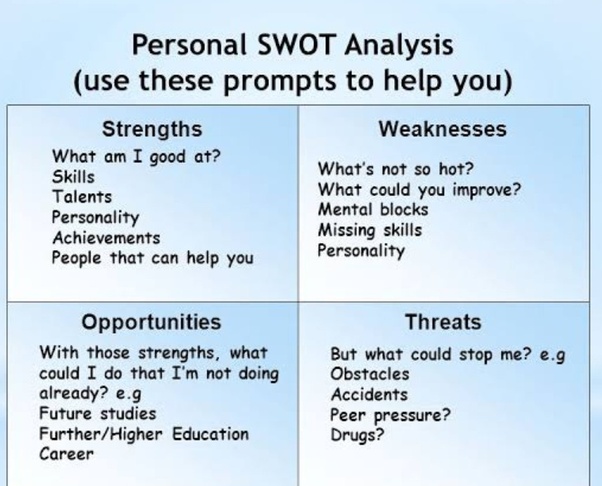Advanced Writing Techniques to Enhance Your Craft
Once you've mastered the basics and addressed your weaknesses, it's time to delve into more advanced techniques that can set you apart from the average writer. These methods will not only refine your content but also engage your audience on a deeper level.
1. Master the Art of Storytelling
Storytelling is a timeless technique that hooks readers emotionally. Whether you're writing fiction, a blog, or even a business case study, storytelling adds a human element that readers relate to.
Why Storytelling Works:
- Emotional connection: Stories allow your readers to connect emotionally, making your content more memorable.
- Engagement: A well-told story keeps readers interested from start to finish.
- Easy to understand: Stories simplify complex ideas, making them easier to digest.
How to Incorporate Storytelling:
- Use real-life examples: Illustrate your points with personal anecdotes or case studies.
- Create relatable characters: Even in non-fiction, develop personas that your audience can relate to, such as your ideal customer or a hero figure.
- Add a narrative arc: Include elements like a challenge, a journey, and a resolution to give your story structure and meaning.
2. Create a Strong Narrative Flow
Your content should guide readers smoothly from one point to the next. Seamless transitions between ideas not only improve readability but also keep your audience engaged.
How to Build a Strong Narrative Flow:
- Use transitions: Phrases like "on the other hand," "additionally," or "similarly" guide readers from one idea to the next.
- Follow a logical structure: Arrange your paragraphs in a clear order. For example, start with a problem, discuss solutions, and end with a conclusion.
- Avoid abrupt shifts: Ensure that every paragraph naturally leads into the next to maintain a steady flow.
3. Employ Visual and Sensory Language
Readers are more engaged when they can visualize what you’re describing. Adding sensory details and vivid imagery to your writing will elevate the reader's experience.
How to Use Sensory Language:
- Incorporate the senses: Describe sights, sounds, smells, tastes, and textures to create an immersive experience for your readers.
- Use metaphors and similes: Compare complex ideas to everyday objects to make your points more relatable and vivid.
- Show, don’t tell: Instead of telling readers how to feel, show them through detailed, engaging descriptions.
Practical Writing Exercises to Strengthen Your Skills
Now that you understand key writing techniques, it's time to put theory into practice. Consistent practice is the most effective way to strengthen your writing muscles. Here are some targeted exercises to enhance your craft.
1. The One-Sentence Summary Challenge
This exercise forces you to focus on clarity by distilling a complex idea into one concise sentence. It’s perfect for improving clarity and focus.
How It Works:
- Choose a topic or a story you want to write about.
- Summarize it in one sentence, ensuring it covers the main idea without any fluff.
- Rewrite the sentence multiple times, aiming for even greater brevity and precision each time.
2. Rewrite Passive Sentences
Weak writing often stems from an overreliance on the passive voice, which can make your sentences vague and unengaging. This exercise helps you focus on using active voice.
How It Works:
- Find 5-10 sentences from your writing that use the passive voice. For example, “The letter was written by Sarah.”
- Rewrite each sentence using the active voice: “Sarah wrote the letter.”
- Notice how the active voice strengthens your sentence structure and makes your writing more dynamic.
3. Daily Freewriting
Freewriting allows you to write without boundaries. By setting a timer and writing continuously, you’ll improve your flow and generate fresh ideas.
How It Works:
- Set a timer for 10 to 15 minutes.
- Write about any topic without stopping to edit, correct, or think too much. Just let the words flow.
- When the timer ends, read through your work. You may find valuable ideas or phrases that can be polished and used later.
4. Practice Writing Descriptive Passages
This exercise is designed to help you enhance your sensory and descriptive writing skills. Whether you’re describing a setting, an emotion, or a person, details make a huge difference in reader engagement.
How It Works:
- Choose a location (e.g., a park, a busy street) or an object (e.g., a coffee cup, a smartphone).
- Write a 200-word passage describing it using all five senses. Focus on bringing the reader into the scene.
- Refine your passage by cutting unnecessary words, adding vivid details, and improving sentence flow.
Psychological Aspects of Writing: Breaking Through Mental Barriers
Writing isn't just about technical skills. Many writers struggle with the psychological aspects of the craft, such as self-doubt, procrastination, and burnout. Addressing these issues is critical for long-term success.
1. Overcoming Self-Doubt
Every writer faces self-doubt at some point. You might worry that your ideas aren't good enough or that your writing won’t resonate with your audience. The key is learning to quiet your inner critic.
How to Overcome Self-Doubt:
- Acknowledge it: Self-doubt is natural, and even the best writers experience it. Accept it as part of the process rather than letting it stop you.
- Focus on the process, not the outcome: Instead of worrying about how readers will perceive your work, concentrate on enjoying the act of writing itself.
- Take small risks: Push yourself out of your comfort zone by sharing your work with others, even if it’s not perfect. The feedback will help you grow.
2. Beating Procrastination
Procrastination can cripple your productivity as a writer. Often, it's a result of fear—whether it's fear of failure, fear of starting, or fear of the unknown. However, you can beat procrastination with the right approach.
Tips to Beat Procrastination:
- Set small, achievable goals: Break your writing project into manageable chunks and tackle one at a time.
- Create a writing schedule: Dedicate specific times in your day for writing and stick to them consistently.
- Use a timer: Set a timer for 25 minutes (a Pomodoro session) and focus solely on writing during that time. Take a short break afterward.
3. Avoiding Burnout
Writing burnout occurs when you’re mentally and emotionally drained from your craft. It can result from overwork, perfectionism, or a lack of passion. Maintaining balance is essential to prevent burnout.
How to Prevent Burnout:
- Take regular breaks: Step away from writing to recharge. Short walks, meditation, or even creative hobbies unrelated to writing can help refresh your mind.
- Limit distractions: Create a dedicated writing environment where you can focus without interruptions.
- Mix up your projects: If you’re working on one large project, balance it with smaller, more enjoyable pieces to keep your enthusiasm alive.
Writing Is a Journey, Not a Destination
In the end, writing is a continuous journey of growth, learning, and self-discovery. By recognizing your weaknesses, you’ve already taken the first step toward improvement. From refining clarity to mastering storytelling, building strong narrative flow, and overcoming psychological barriers, each aspect of writing contributes to your overall skillset.
Remember, the path to becoming a better writer is not about perfection but about progress. With practice, patience, and a willingness to learn, you can transform your writing weaknesses into your greatest strengths. Keep writing, keep improving, and most importantly, enjoy the process.





















